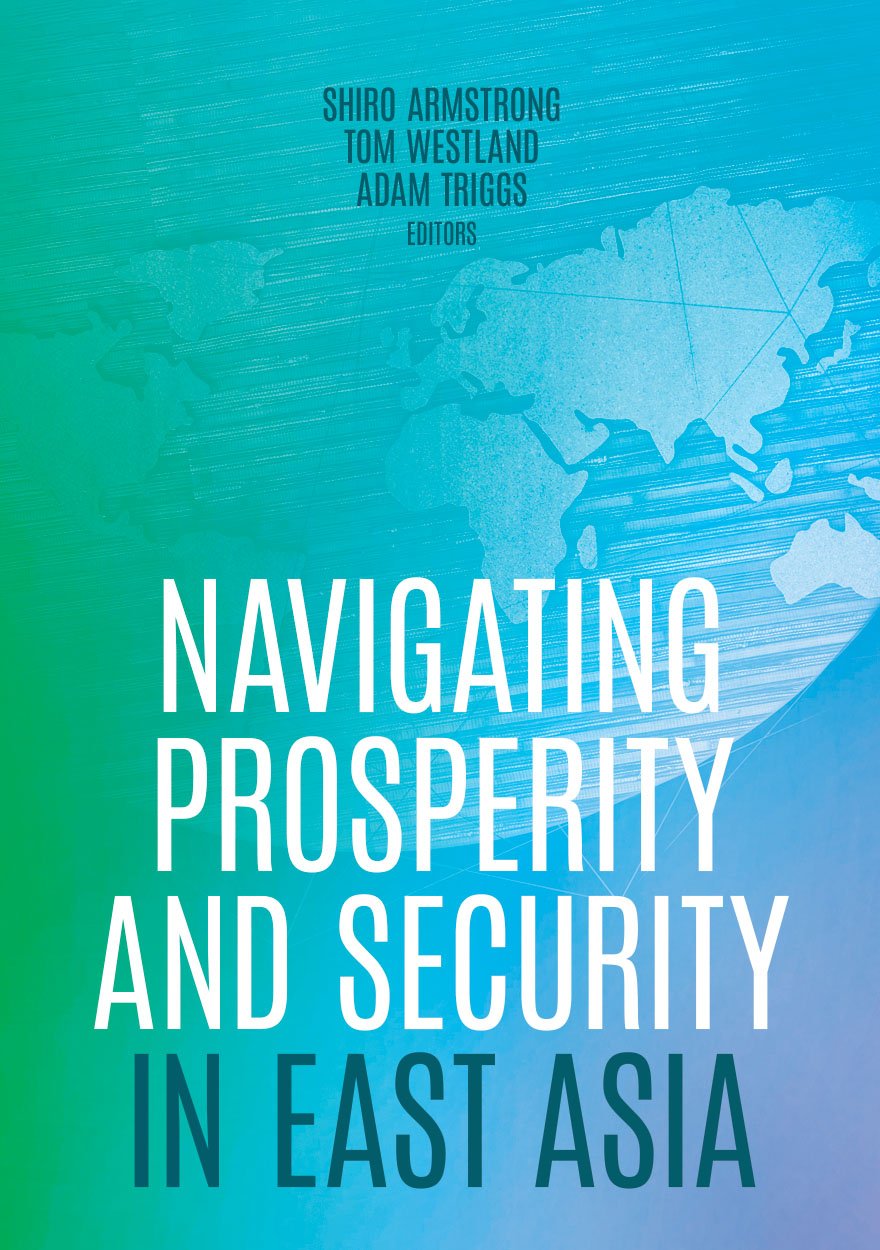Amy King’s new book chapter on Asia’s economic and political security in a shifting global order
(Credit: ANU Press)
Amy King has published a new book chapter, co-authored with Peter Drysdale and Adam Triggs, on Asia’s economic and political security in a shifting global order. The chapter is part of a wider volume, Navigating Prosperity and Security in East Asia, edited by Shiro Armstrong, Tom Westland and Adam Triggs, and recently published by ANU Press.
The book and our particular chapter sprung from the observation that economic and security considerations have become even more tightly enmeshed in recent years as a result of the uncertainties posed by great power competition, rising protectionism, climate change, the COVID-19 pandemic, and an outdated multilateral institutional setting. Yet while strategists and policy-makers have generated considerable new research and policy frameworks that emphasise the geopolitical and national security side of the equation, economists, and those attentive to economic history, have been far less prominent in this analysis.
The editors therefore gathered together a group of distinguished economists from East Asia who have been close to (or involved in) the policymaking processes of selected countries in the region, to examine how these countries have conceptualised the relationship between economics and security, and how they are subsequently navigating contemporary policy choices. The core empirical chapters provide rich new detail and analysis of enmeshed economic and security policy choices in Japan, Australia, Indonesia, Malaysia, Vietnam and ASEAN as a whole.
Alongside these analyses, our chapter’s account of Asia’s economic and political security in a shifting global order tracks the evolution of the current global economic order, from its conception at Bretton Woods, to its evolution during the Cold War, and to its fragmentation in recent decades. We call attention to the longstanding interplay between economic and security logics in shaping the pattern of the global economic order, the contestation that has always been inherent in this order, and the role of weak and powerful states alike in shaping the order’s evolution and endurance.
In the face of an increasingly fragmented global order, we argue that, because of their dense populations and limited resource endowments, the economies of East Asia are more dependent on the international economy and global supply chains than those elsewhere in the world. Because of this dependence, and because of the role they have historically played in shaping the global order, East Asian countries now possess a unique opportunity to achieve the collective authority necessary for updating global rules and institutions, and in rebuilding trust in the global order.
Follow my Twitter Page for the latest updates!

